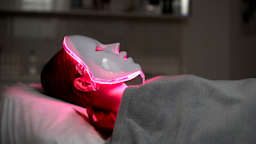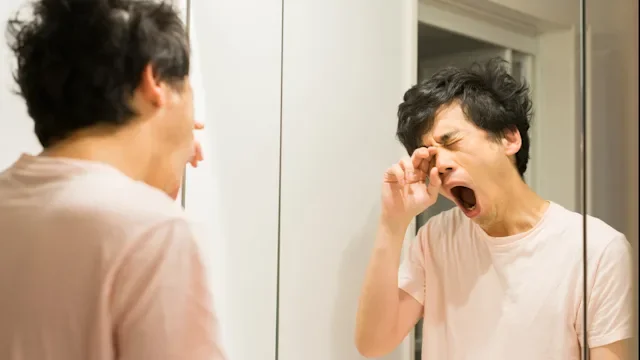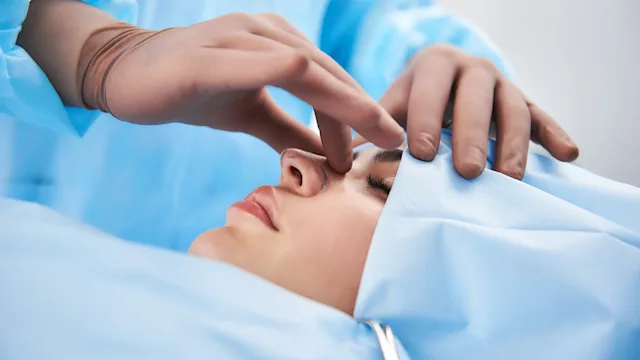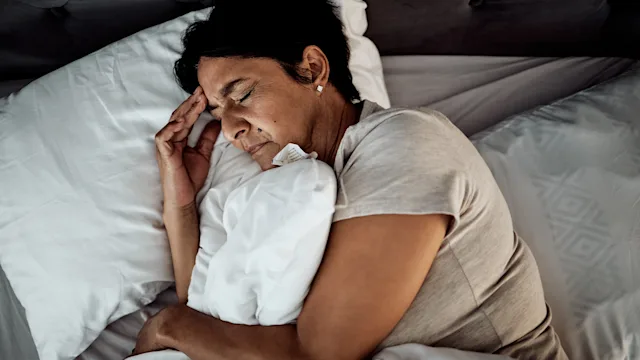Key takeaways:
Adequate sleep is key for overall health. But most Americans say they aren’t getting enough.
Many factors can affect quality of sleep, including screen use, stress, diet, and environment.
Three people share with GoodRx how small changes to their nighttime routine helped improve the quality of their sleep.
If you’ve ever lain awake in bed watching the time slowly tick by, or woken up in the middle of the night unable to get back to dreamland, you’re not alone.
According to the National Heart, Lung, and Blood Institute, as many as 50 million to 70 million Americans have sleep disorders. And a 2023 Gallup poll poll found that nearly 57% of adults report not getting enough sleep.
While one night of tossing and turning can make for a bad day struggling to keep your eyes open, over time, a lack of quality sleep can take a toll on your overall health. Sleep deficiencies are linked to many chronic health problems, including heart disease, high blood pressure, stroke, and depression.
Search and compare options
So how can you make sure you’re catching enough z’s? Three people share how a simple adjustment to their bedtime routine changed their sleeping habits.
Banishing phones and devices from the bedroom
A few months ago, children’s book author Charnaie Gordon started to notice she was feeling tired more often than not.
“I’d wake up feeling groggy,” says the 46-year-old mother of two in Connecticut. “There were nights when I just couldn’t seem to wind down. And even when I did sleep, it didn’t feel as restful as I needed it to be.”
Plus, she noticed she and her husband were glued to their phones before bed, which she says wasn’t helping matters, and she knew something needed to change.
“I came across a couple of books that really resonated with me,” Charnaie says. “‘Why We Sleep’ by Dr. Matthew Walker opened my eyes to the importance of good sleep habits, and ‘The Anxious Generation’ by Jonathan Haidt emphasized the impact of reducing screen time on mental health. It felt like the universe was nudging me in the right direction. Both of these books helped me to better understand the importance of disconnecting from screens before bed in order to improve sleep.”
That’s when Charnaie decided to shake things up a bit.
Read more like this
Explore these related articles, suggested for readers like you.
“We banished all our phones and devices from the bedrooms at night and now rely solely on alarm clocks to wake us up in the morning when needed,” she says.

Though it’s only been 3 weeks since having no technology in their bedrooms, Charnaie says the difference has been remarkable.
“Mornings are more peaceful without the immediate grab for our phones. The kids are focused on their morning routines instead of diving straight into screen time. Plus, I’ve noticed that I’m more mindful in the mornings, whether it’s reading or meditating before diving into emails and social media.”
Charnaie says it’s a change she plans to stick with.
“I’d absolutely recommend it to anyone looking to improve their sleep quality and reduce their screen time dependency. It’s made such a positive impact on our family’s well-being.”
Switching sides of the bed
When Erin Gibson turned 50 this year, she noticed her sleep took a serious nosedive. She had no trouble falling asleep, but would wake up in the middle of the night and not fall back asleep for hours.
“My doctor said perimenopause could be causing the disruption,” she says.
Erin wasn’t eager to take melatonin or other sleep aids, because they make her feel groggy the next day. So she switched up her bedtime routine — starting with moving to the other side of the bed.
“I switched sides to be further away from the TV, which we’ve used for white noise for decades,” she says.

Another change? She used to watch television in bed, and then get up and do her bedtime routine of washing her face and brushing her teeth. But now she says she doesn’t get into bed until everything is finished. Then, “lights dimmed, I read for maybe half an hour, turn the lights off, put on meditation or white noise on Spotify,” she says.
The Pennsylvania mom of two teenagers isn’t sure what part of her new routine has been the most helpful, but she’s sticking to it.
“I am sleeping through the night almost every night,” she says.
Using her phone’s red light filter
Karma Brown has been dealing with sleep issues since her mid-40s.
“I attribute it now to perimenopause,” says the 51-year-old novelist in Toronto. “I was having really terrible hot flashes and night sweats. That was the first thing that started seriously impacting my sleep. Every hour I was waking up sweating, and it would take me forever to fall back asleep.”
While hormone replacement therapy helped her symptoms, Karma still found she was sometimes waking up in the middle of the night and couldn’t fall back asleep.

“I was just feeling like I wasn’t getting really restful sleep,” she says.
About a year ago, while researching stress reduction and how to lower her cortisol — another aspect of health she was interested in — Karma read about a red light filter you can activate on your smartphone. “Apparently red light doesn’t affect your circadian rhythm as much as other [spectrums],” she says.
She started turning on the red filter every evening at 7:30PM. Then, right before going to bed, she also puts her phone on sleep mode to eliminate any distractions throughout the night.
“Can I say that it worked? I don’t know,” she says. But it’s become part of her nighttime routine, along with making sure she goes to bed and gets up at roughly the same time every evening and morning.
“I think consistency is the main thing,” she says. “It helps to keep those circadian rhythms where they need to be.” And whether it’s the red light filter or something else, “I don’t feel tired during the day,” she says. “I feel pretty good with my sleep.”

Why trust our experts?




















